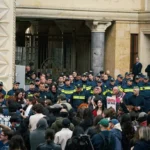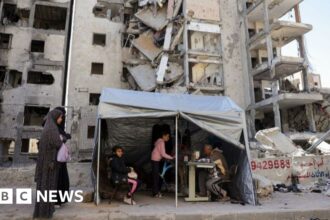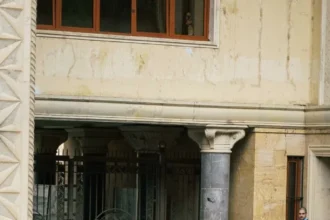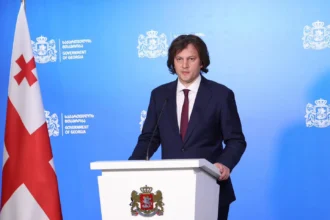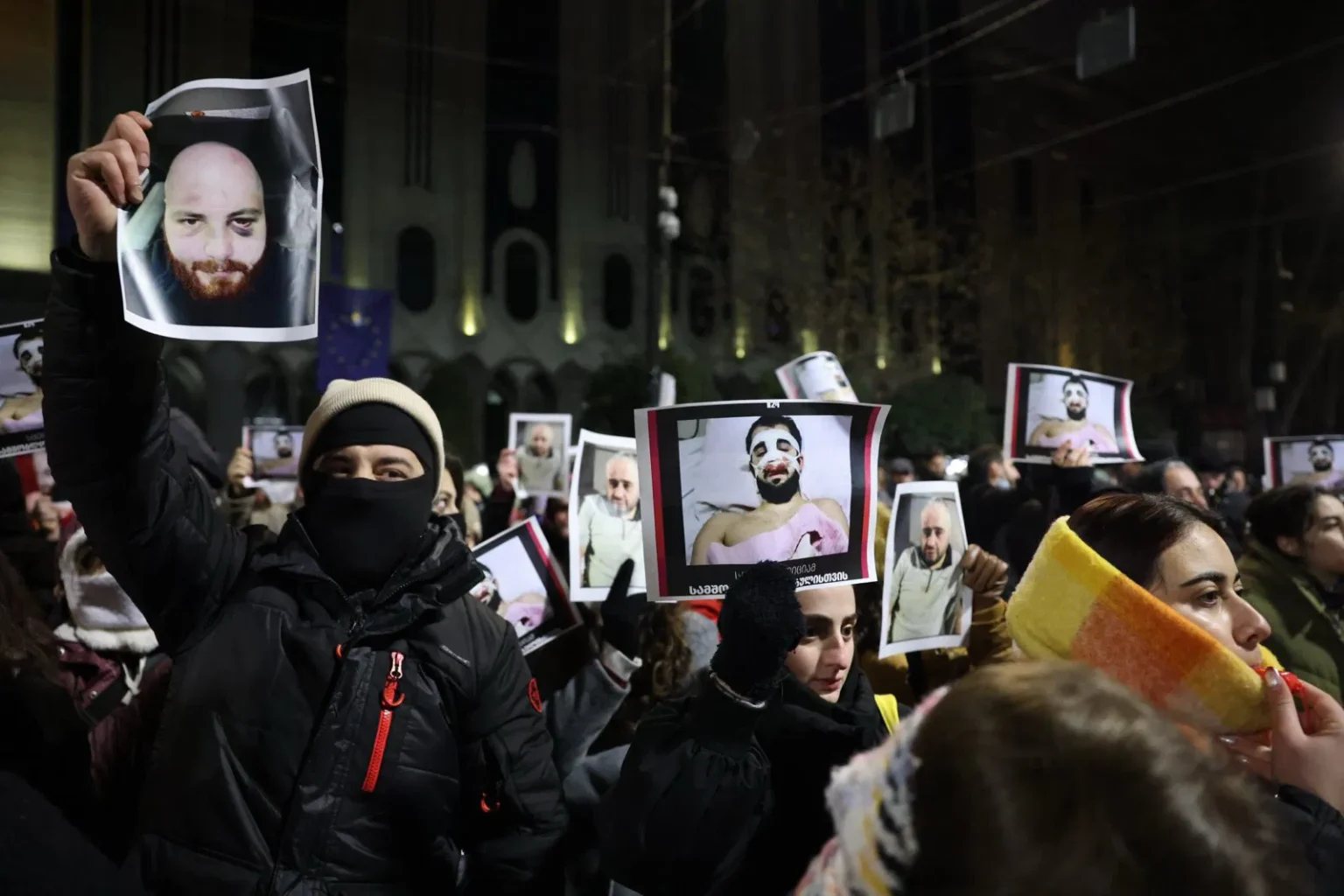**Police Brutality in Georgia: Similarities with Belarus**
Protests have erupted in Georgia after the government announced its intention to halt EU accession. Journalists are questioning whether the Georgian authorities sought advice from Belarus on some of their tactics.
Since November 28, over 460 people have been arrested for protesting. Watchdogs report that 300 out of these detainees were physically abused, with at least 80 requiring hospitalization. The Georgian Public Defender described police actions as “acts of torture.”
**Similarities with Belarus**
There are concerns that the Georgian police learned violent tactics from their Belarusian counterparts. TV Pirveli alleged that the Georgian Special Security Forces adopted methods used in Belarus during the 2020-21 protests.
Belarus dissidents have supported this claim, saying the Georgian police targeted individuals carrying protest symbols and deployed masked officers to snatch targets. “Beating minivans” were also parked near protest sites.
**Cooperation between Georgia and Belarus**
Georgia and Belarus have a security cooperation agreement in place since 2015. The two countries signed agreements on combating organized crime, readmission, and protocol implementation. In 2016, they expanded cooperation to include security services.
This relationship has raised concerns about the erosion of democratic oversight in Georgia. Activists say the legal framework allows for the exchange of technical assistance and participation in joint operational planning.
**No Smoking Gun**
Despite similarities with Belarus, there is no concrete evidence that Belarusian forces directly contributed to the repression in Georgia.
However, activists point out that the Georgian police’s behavior mirrors Belarusian approaches, suggesting possible influence. The scale of police violence has been extreme, but Georgia law enforcement has a history of excessive force.
**Broader Concerns**
The agreements with Belarus raise broader concerns about the erosion of democratic oversight in Georgia. The Georgian Dream government’s domination and capture of state institutions have hindered transparency and objective analysis.
These agreements focus on combating crime and terrorism, but their implementation is linked to Georgia’s growing authoritarian tendencies. The shared templates and operational cooperation suggest that Georgian law enforcement is learning from repressive practices, compromising the nation’s commitment to European integration and democratic principles.
Read More @ civil.ge

